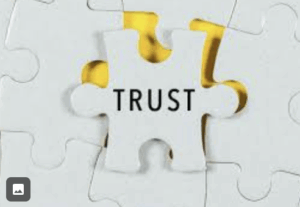In the heat of an argument, emotions can flare, words can sting, and it can feel like the only way to protect yourself—or your relationship—is to walk away. But taking space during a conflict doesn’t mean shutting down or avoiding the issue. When done intentionally, a pause can actually help you reconnect more effectively.
At Kingston & Co Counseling, we often remind clients that healthy communication isn’t about never disagreeing—it’s about knowing how to repair and regulate during moments of tension. Taking a break can be one of the most powerful tools for doing just that.
Why Taking a Break Helps During Conflict
When we’re in conflict, our bodies often go into “fight, flight, or freeze” mode. Heart rate increases, muscles tighten, and our ability to listen or think clearly diminishes. In this state, continuing to argue can cause more harm than good.
A short, structured break gives both individuals time to:
- Calm down physically and emotionally
- Reflect on what’s really being felt
- Prevent saying things they might regret
- Return to the conversation with empathy and understanding
If anxiety tends to make conflict feel overwhelming, therapy can help you learn techniques to stay grounded and emotionally balanced in high-stress moments.
For more tips, you may also like our blog post on Grounding Techniques for Anxiety.
Step 1: Recognize When It’s Time to Pause
One of the biggest signs that a break is needed is when the conversation stops being productive. You might notice raised voices, defensive body language, or the urge to “win” instead of understand.
In that moment, it’s okay to step back. But how you do it matters. Rather than storming off or shutting down, communicate your need for space respectfully.
You might say something like:
“I’m feeling really overwhelmed right now. Can we take a short break and come back to this in 30 minutes?”
This approach signals that you care about the relationship and plan to return, rather than abandoning the conversation.
Step 2: Set Clear Expectations for the Break
A healthy break has structure and intention. Before stepping away, agree on:
- How long the break will last (typically 20–60 minutes)
- When you’ll come back to the discussion
- What you’ll both do during that time (no stewing, ruminating, or rehearsing arguments)
During the break, focus on calming your body and mind. Take a walk, listen to music, or practice deep breathing—whatever helps you self-soothe.
For ideas, try some of the exercises in our blog post 10 Simple Grounding Techniques for Anxiety.
Step 3: Use the Time to Reflect, Not Retaliate
The goal of taking a break isn’t to plan your next comeback—it’s to reflect on your emotions and needs. Ask yourself:
- What am I really feeling beneath my anger or frustration?
- What do I need from my partner to feel heard or understood?
- How might my words have impacted them?
This kind of reflection helps you return to the conversation with empathy and clarity, rather than defensiveness.
Step 4: Return and Reconnect
When the agreed-upon time is up, return to the conversation as promised. Acknowledge the effort both of you made to pause and reset.
You might begin with something like:
“Thank you for taking a break with me. I’m calmer now, and I really want to understand what you were saying.”
Approaching the discussion with curiosity rather than defensiveness makes reconnection easier.
If conflict patterns keep recurring in your relationship, you may benefit from working together in Couples Therapy. Our therapists help partners build communication tools that turn conflict into an opportunity for deeper understanding.
Step 5: Reflect on What You Learned
After the conflict has been resolved, talk about how taking a break helped (or didn’t). What worked well? What could be improved next time?
Making “structured breaks” a normal part of your conflict resolution toolkit can reduce emotional escalation and strengthen trust over time.
In Conclusion
Taking a break during conflict doesn’t mean avoiding your problems—it means protecting your relationship. When done with care and intention, a pause gives both partners space to breathe, reflect, and come back together stronger.
If you’re finding it difficult to manage conflict or rebuild trust after arguments, you’re not alone. At Kingston & Co Counseling, we specialize in helping couples navigate communication challenges, repair emotional wounds, and rediscover closeness.
Learn more about us and explore our services to start your journey toward healthier communication today.







